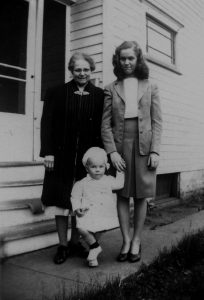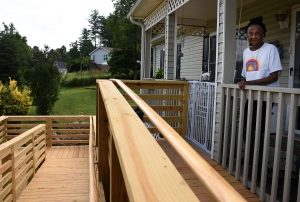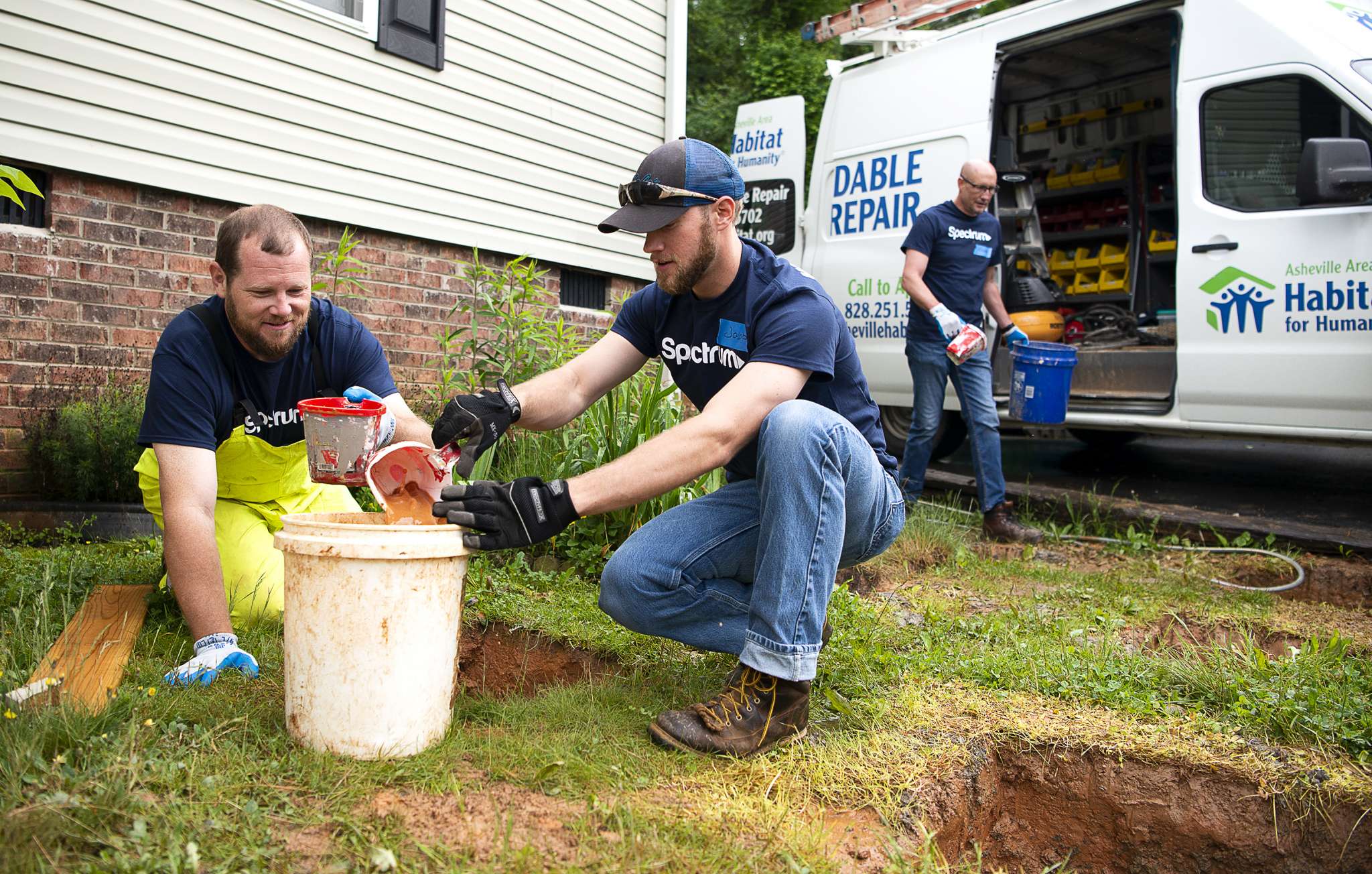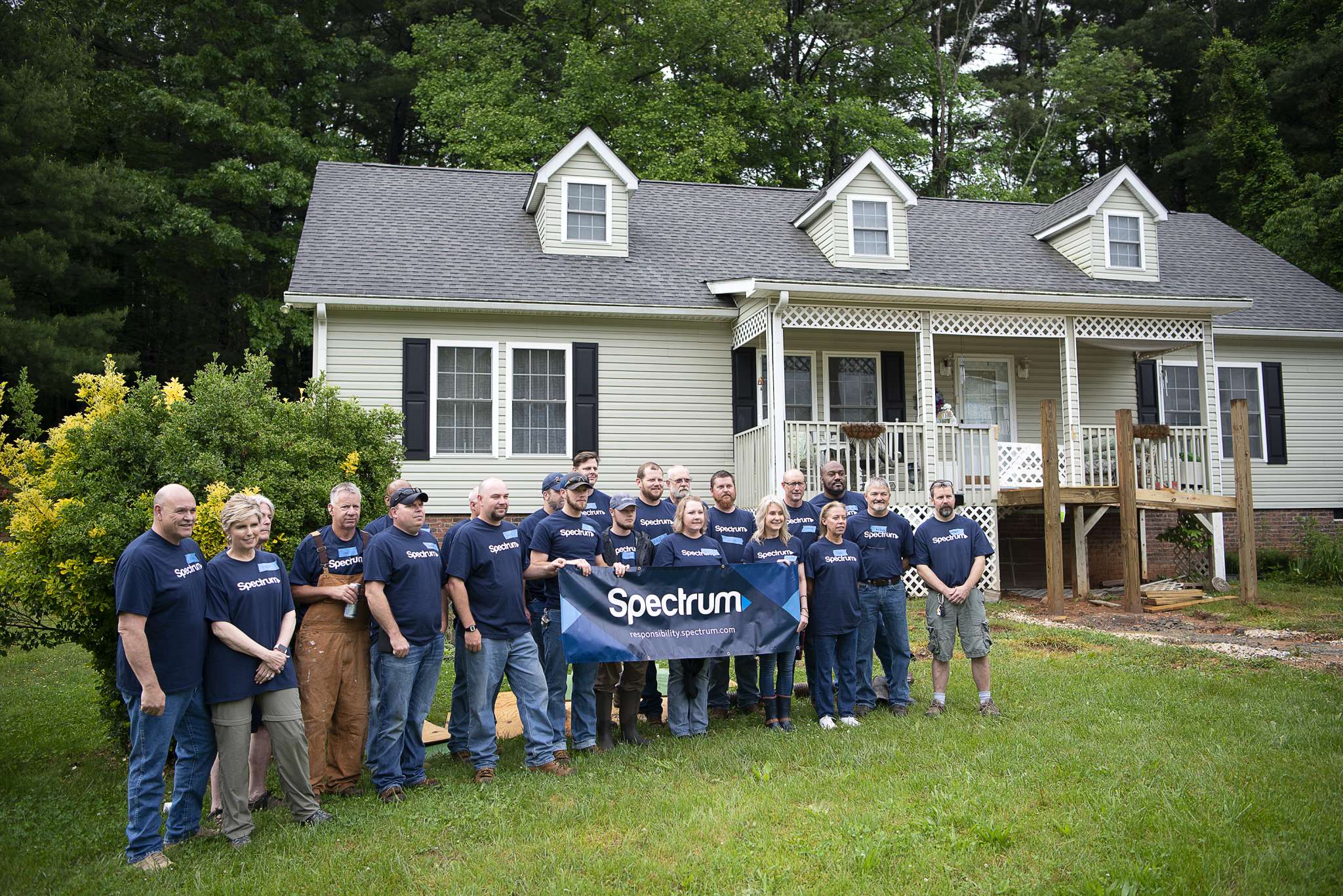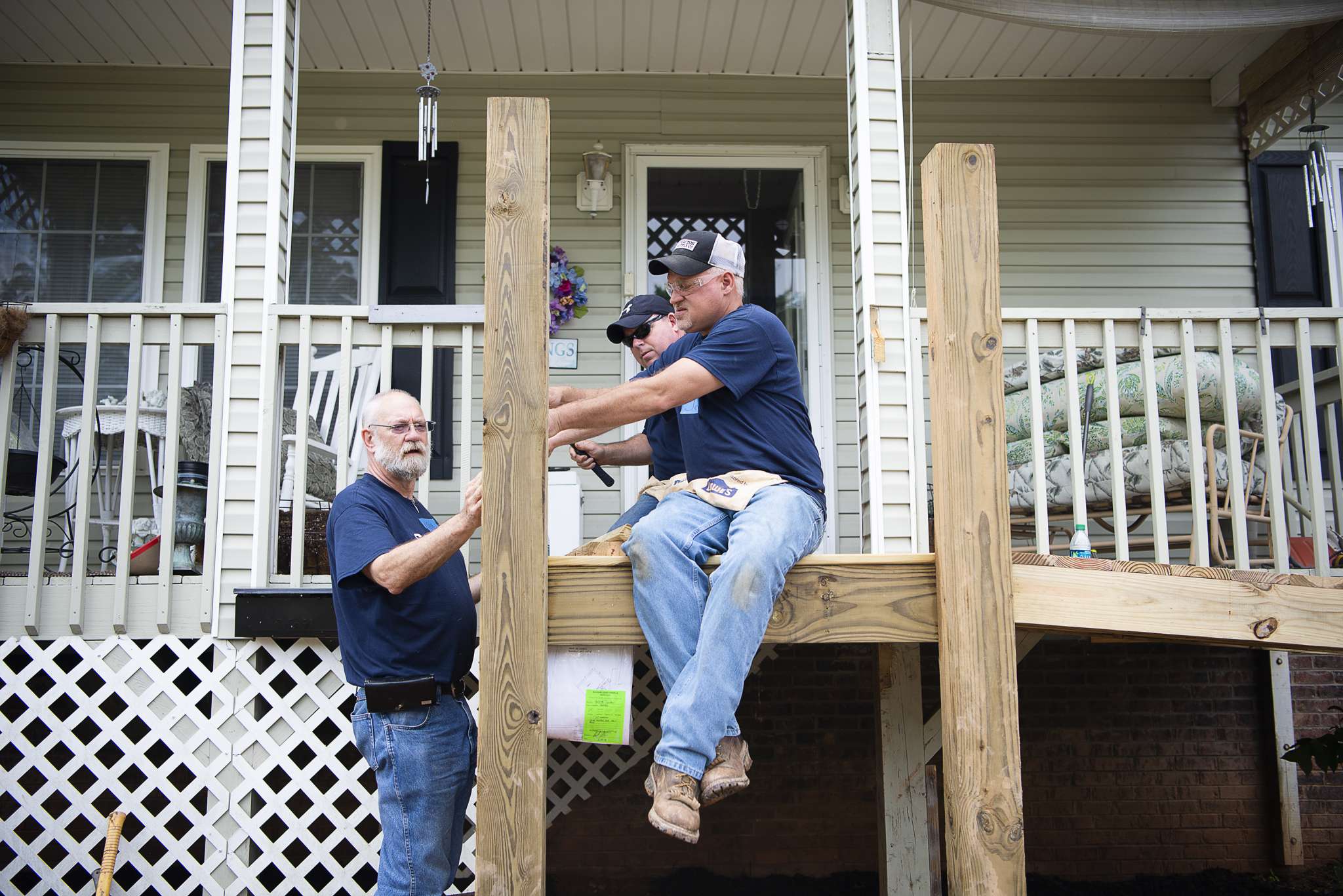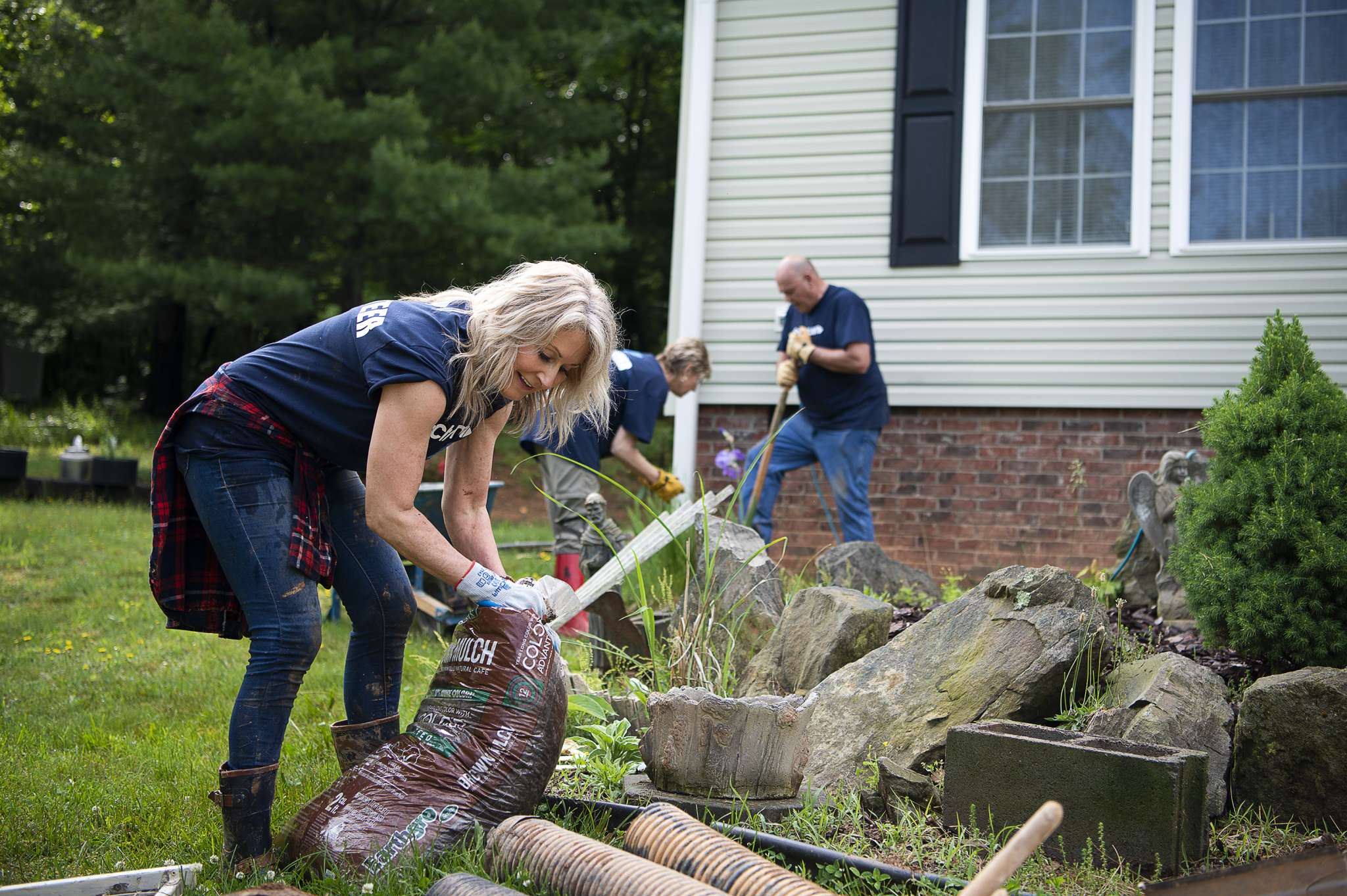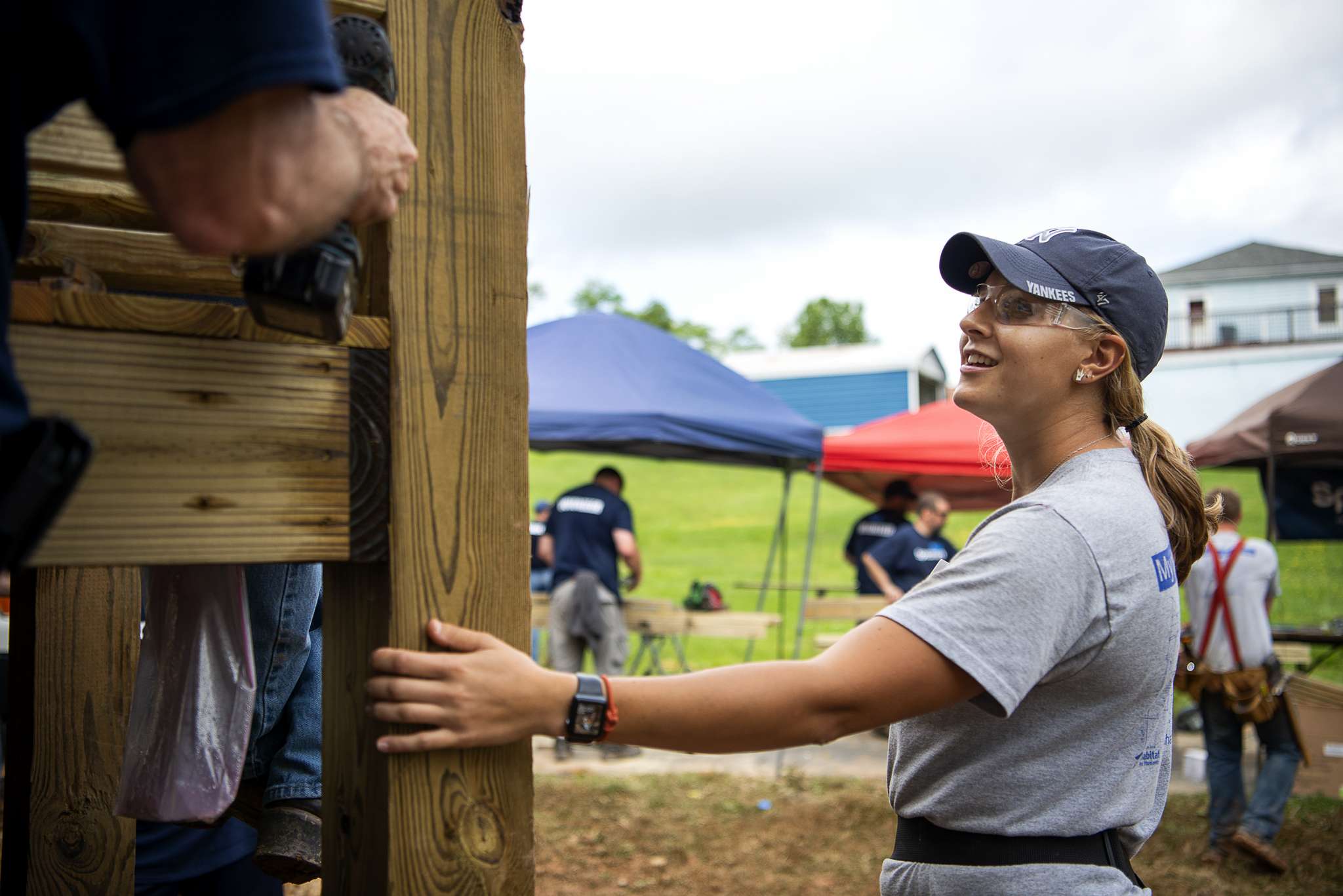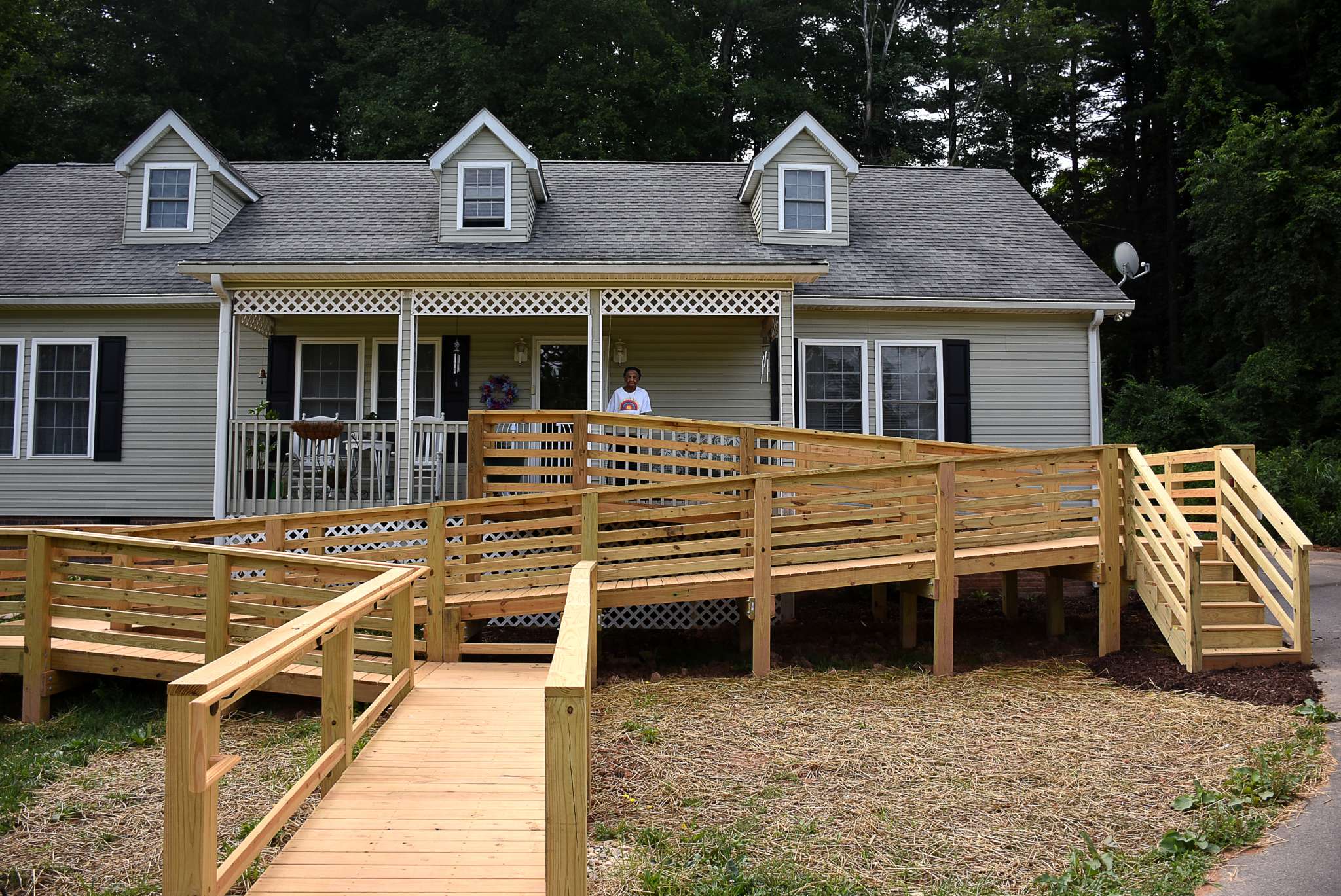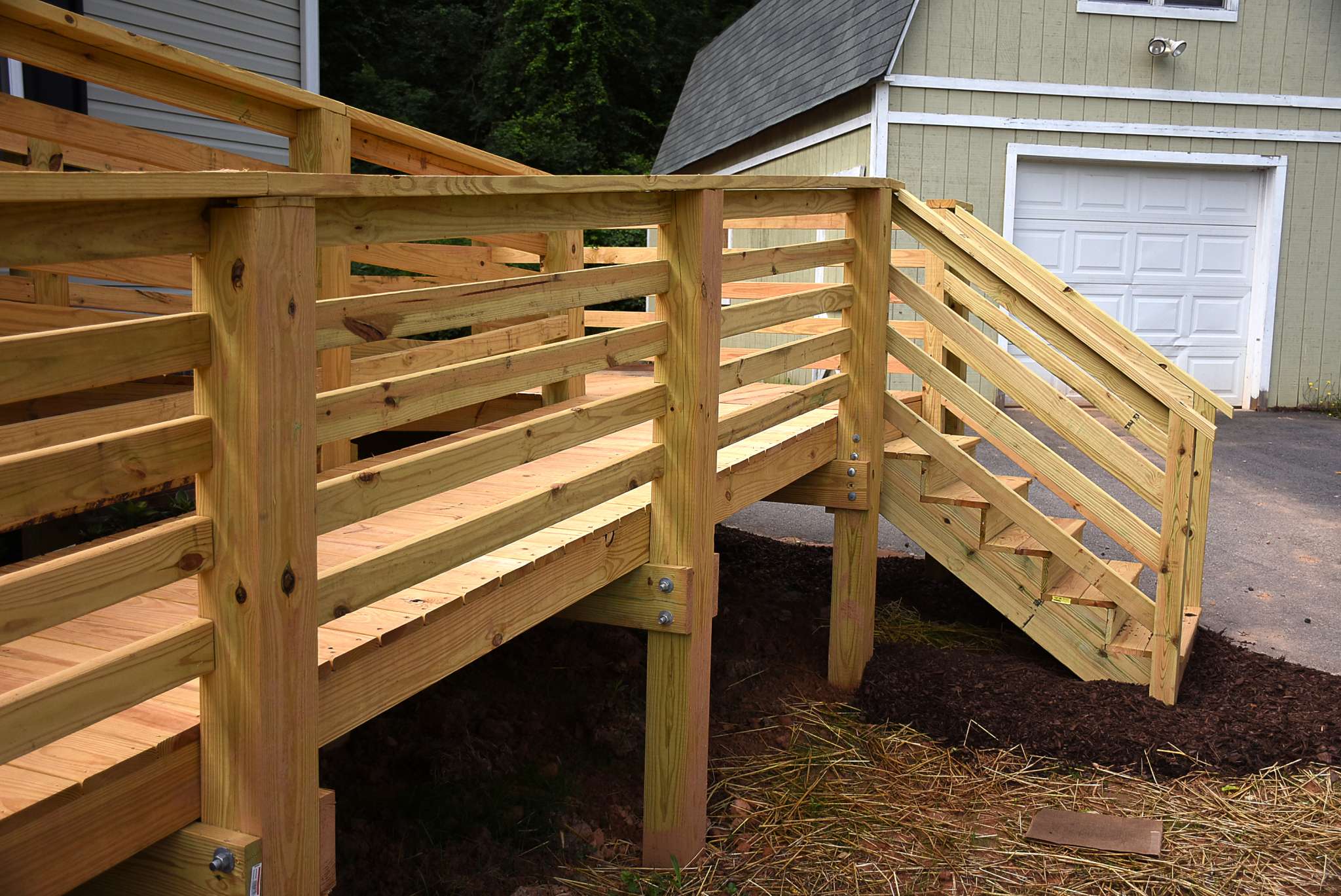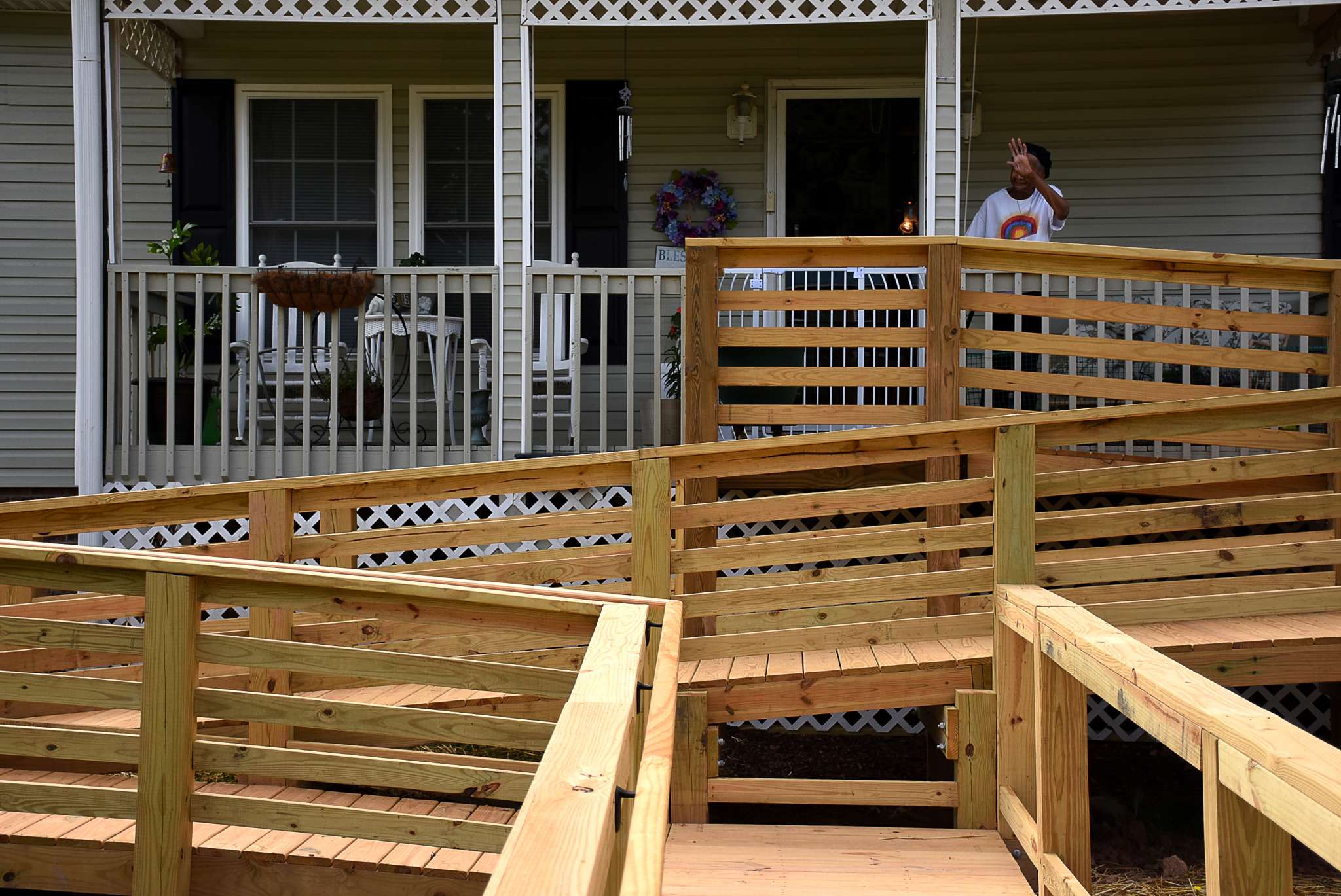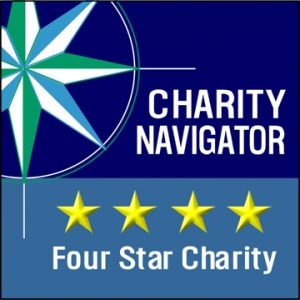Is a Qualifying Charitable Distribution (QCD) Right for You?
By Skip Helms, Asheville Habitat Legacy Builders Society Member, former Asheville Habitat Board Member, and President of Helms Wealth Management, LLC
As the end of the year approaches, we want to proactively thank you for considering Asheville Area Habitat for Humanity in your giving budget. We appreciate your generosity and will always use your gifts wisely.
Donors over the age of 70 ½ now have some new opportunities. For many years, the tax code has allowed people over that tender age to transfer up to $100,000 a year from their Individual Retirement Accounts (IRAs) to qualifying charities like Habitat. The gift is a direct pass-through. The charity gets all of the money and there are no taxes due.
People over 70 have to take Required Minimum Distributions (RMDs) from their account every year. If you transfer some or all of that mandatory withdrawal to a qualifying charity, it isn’t considered taxable income.
The provision is called the Qualifying Charitable Distribution (QCD) and donors have been using it for some time now. Recent tax law changes just made it much more important.
The standard deduction has doubled from $6,000 to $12,000 per person or $24,000 for couples. That’s good news. Only about 5% of Americans will still itemize their deductions this year.
Donors over age 70 can increase their tax savings by carefully choosing which account to use for gifts. They still have to take required IRA distributions. If they will be better off using the standard deduction and not itemizing their charitable gifts, giving through their IRA keeps that portion of those withdrawals from becoming taxable income. It’s almost like deducting it twice by checking a different box on the distribution form. Here’s a short example:
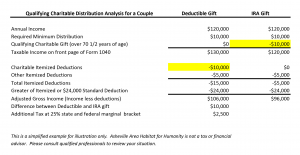
You only ever own most of an IRA. The government owns the rest. You have to pay them their share when you spend it, or your family has to pay them later. But if you give your portion to charity, you can give them the government’s money too.
That makes IRAs attractive for current giving. It makes them great for legacy planning since your family will get an updated cost basis on your other assets.
Asheville Area Habitat for Humanity can do wonderful things with your generous gift but we are not financial or tax planners. We encourage you to speak with qualified advisors who know your situation. Please call Kit Rains at 828.210.9365 to let us know how we can help.
Thank you again for thinking of Asheville Area Habitat for Humanity and we hope you will forward this link to friends who have questions about supporting Habitat or other great organizations.
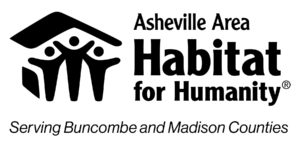
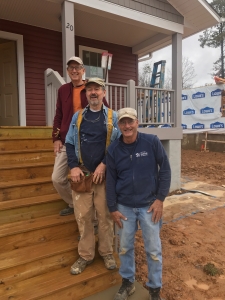
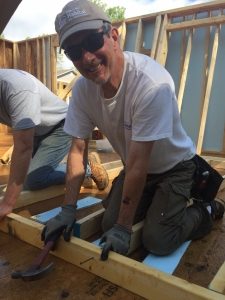
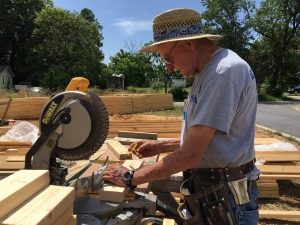
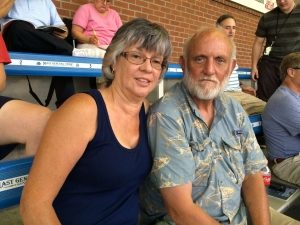
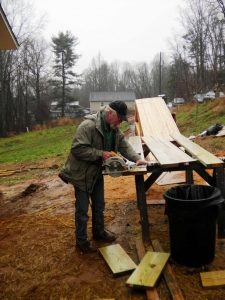
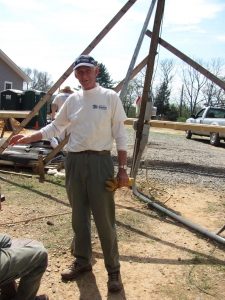
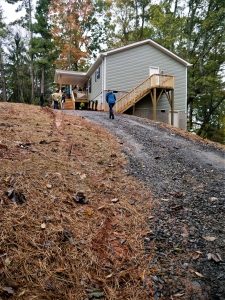 It’s a steep walk up the drive to Will and Savannah Alshaer’s new home in Mars Hill, NC. But once you’re there you can see a long way.
It’s a steep walk up the drive to Will and Savannah Alshaer’s new home in Mars Hill, NC. But once you’re there you can see a long way. Not all of the bulbs sold at the ReStore are 60-watt bulb equivalents. In fact, the store carries a variety of styles and wattages, including energy efficient lighting fixtures. Customers will find a large selection and great prices on all of the store’s efficient lighting products.
Not all of the bulbs sold at the ReStore are 60-watt bulb equivalents. In fact, the store carries a variety of styles and wattages, including energy efficient lighting fixtures. Customers will find a large selection and great prices on all of the store’s efficient lighting products.
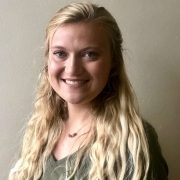 My name is Nora Gilmer and I’m from Piney Flats, TN. I love being outside, coffee, and my goofy dog Gertrude. Last year, I served with AmeriCorps NCCC, Pacific Region. My team traveled to Washington, the U.S. Virgin Islands, California, and Oregon. As my time with NCCC came to an end, I was very excited to have the opportunity to move a little closer to home and start another year of service with Habitat!
My name is Nora Gilmer and I’m from Piney Flats, TN. I love being outside, coffee, and my goofy dog Gertrude. Last year, I served with AmeriCorps NCCC, Pacific Region. My team traveled to Washington, the U.S. Virgin Islands, California, and Oregon. As my time with NCCC came to an end, I was very excited to have the opportunity to move a little closer to home and start another year of service with Habitat! My name is Kaitlyn Ferdinande and I am from Michigan. I recently graduated with a Bachelor of Arts in Communications from Saginaw Valley State University (SVSU). I was really involved in the Alternative Breaks program at SVSU and worked my way up from Participant to Site Leader, and then served as the Fundraising Coordinator. The program opened up my passion for Social Justice issues such as affordable housing. I also worked as the Volunteer Coordinator in SVSU’s Student Life Center. I have worked with Asheville Habitat in the past as part of Alternative Break, and I am excited to now serve as the Volunteer Services Coordinator for the nonprofit during my AmeriCorps term.
My name is Kaitlyn Ferdinande and I am from Michigan. I recently graduated with a Bachelor of Arts in Communications from Saginaw Valley State University (SVSU). I was really involved in the Alternative Breaks program at SVSU and worked my way up from Participant to Site Leader, and then served as the Fundraising Coordinator. The program opened up my passion for Social Justice issues such as affordable housing. I also worked as the Volunteer Coordinator in SVSU’s Student Life Center. I have worked with Asheville Habitat in the past as part of Alternative Break, and I am excited to now serve as the Volunteer Services Coordinator for the nonprofit during my AmeriCorps term. Hi! My name is Mackenzie Hampson, and I’m originally from Baltimore, MD but have lived in Charleston, SC for the past five years. I went to the College of Charleston and earned my degree in Finance. I was a year round swimmer for nine years, but now I just enjoy any fun way of staying active. I love being outside as much as possible, whether it’s going to the beach, hiking, running, etc. I also love working with and helping people, and have found that joy through Habitat. I participated in two Collegiate Challenge trips through Habitat for Humanity and I’m thrilled to be continuing for a whole year!
Hi! My name is Mackenzie Hampson, and I’m originally from Baltimore, MD but have lived in Charleston, SC for the past five years. I went to the College of Charleston and earned my degree in Finance. I was a year round swimmer for nine years, but now I just enjoy any fun way of staying active. I love being outside as much as possible, whether it’s going to the beach, hiking, running, etc. I also love working with and helping people, and have found that joy through Habitat. I participated in two Collegiate Challenge trips through Habitat for Humanity and I’m thrilled to be continuing for a whole year! My name is Sydney Monshaw and I am thrilled to be serving a second term as a member of the Asheville Habitat Home Repair Team! I graduated from NYU in 2017 with a degree in Sociology and a minor in Poverty Studies. Throughout my time in college I had the opportunity to work at several different non-profits including Appalachia Service Project, Big Brothers Big Sisters of New York City, and The Corporation for Supportive Housing. I have known for a long time that safe, affordable, sustainable housing for everyone is something that I am passionate about and I am excited to spend another year working to make homes around the Asheville Area safer, more accessible, and more livable for families.
My name is Sydney Monshaw and I am thrilled to be serving a second term as a member of the Asheville Habitat Home Repair Team! I graduated from NYU in 2017 with a degree in Sociology and a minor in Poverty Studies. Throughout my time in college I had the opportunity to work at several different non-profits including Appalachia Service Project, Big Brothers Big Sisters of New York City, and The Corporation for Supportive Housing. I have known for a long time that safe, affordable, sustainable housing for everyone is something that I am passionate about and I am excited to spend another year working to make homes around the Asheville Area safer, more accessible, and more livable for families.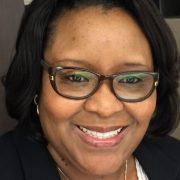 My name is Janice Marie Payne. I am originally a native of Baton Rouge, Louisiana, currently celebrating my 3rd year of residency in Asheville, NC and married to the best husband ever, Samuel. I have six siblings, one biological son, three step daughters and six grandchildren with my husband. Included in our family is Marty, my 9.5 lb. miniature Yorkie Terrier who I just happen to think he’s the smartest and cutest dog in Asheville!
My name is Janice Marie Payne. I am originally a native of Baton Rouge, Louisiana, currently celebrating my 3rd year of residency in Asheville, NC and married to the best husband ever, Samuel. I have six siblings, one biological son, three step daughters and six grandchildren with my husband. Included in our family is Marty, my 9.5 lb. miniature Yorkie Terrier who I just happen to think he’s the smartest and cutest dog in Asheville!